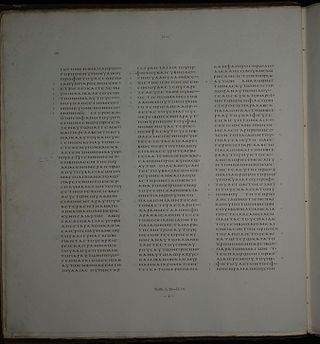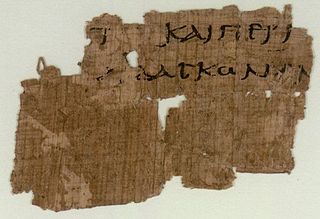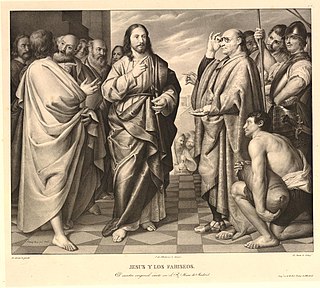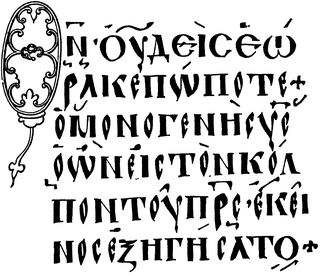Analysis
"I am the Voice, etc." comes from Isaiah 40:3. Witham expands the meaning as: "I am a servant, and prepare paths, your hearts, for the Lord. I come, he says, to say that He is at the doors who is expected, that you may be prepared to go whithersoever He may bid you.” [1] MacEvilly notes that, "Having already declared what he was not, he now declares in very distinct terms, what he was, thus meaning to show the nothingness of his origin, compared with the Messiah." [2]
Augustine: "So spoke Esaias: the prophecy was fulfilled in John the Baptist."
Gregory the Great: "Ye know that the only-begotten Son is called the Word of the Father. Now we know, in the case of our own utterance, the voice first sounds, and then the word is heard. Thus John declares himself to be the voice, i. e. because he precedes the Word, and, through his ministry, the Word of the Father is heard by man."
Origen: "Heracleon, in his discussion on John and the Prophets, infers that because the Saviour was the Word, and John the voice, therefore the whole of the prophetic order was only sound. To which we reply, that, if the trumpet gives an uncertain sound, who shall prepare himself for the battle? If the voice of prophecy is nothing but sound, why does the Saviour send us to it, saying, Search the Scriptures? (John 5:39) But John calls himself the voice, not that crieth, but of one that crieth in the wilderness; viz. of Him Who stood and cried, If any man thirst, let him come unto Me and drink. (John 7:37) He cries, in order that those at a distance may hear him, and understand from the loudness of the sound, the vastness of the thing spoken of."
Theophylact of Ohrid: "Or because he declared the truth plainly, while all who were under the law spoke obscurely."
Gregory the Great: "John crieth in the wilderness, because it is to forsaken and destitute Judæa that he bears the consolatory tidings of a Redeemer."
Origen: "There is need of the voice crying in the wilderness, that the soul, forsaken by God, may be recalled to making straight the way of the Lord, following no more the crooked paths of the serpent. This has reference both to the contemplative life, as enlightened by truth, without mixture of falsehood, and to the practical, as following up the correct perception by the suitable action. Wherefore he adds, Make straight the way of the Lord, as saith the prophet, Esaias."
Gregory the Great: "The way of the Lord is made straight to the heart, when the word of truth is heard with humility; the way of the Lord is made straight to the heart, when the life is formed upon the precept."
This page is based on this
Wikipedia article Text is available under the
CC BY-SA 4.0 license; additional terms may apply.
Images, videos and audio are available under their respective licenses.













